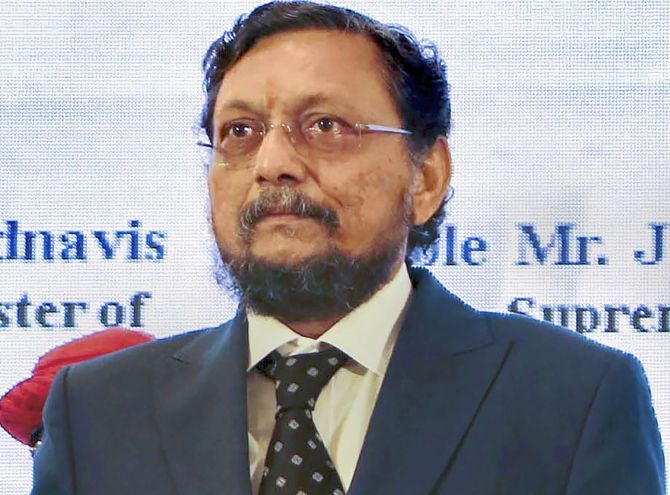Chief Justice of India S A Bobde on Thursday said that nothing is conferred as right of freedom of speech in 'absolute and untrammelled terms' and the framers of the Constitution have struck a resilient balance between liberty and the rights and conditions on which the states can deny it.

"The judiciary has been entrusted with the balancing of the interest of the state and freedom granted by the Constitution to the people," the CJI said adding that 'it has to the large extent operated on the wisdom of the old saying while balancing rights that your right to swing your arms end where my nose begins'.
He said that the restrictions on freedom of speech are in the interest of reputation of individuals and institutions.
Speaking on the Constitution Day celebration organised virtually by the Supreme Court Bar Association (SCBA), the CJI said, as courts its highest duty is to uphold the vision of the document called the Constitution of India, 'which has been handed down to us by our forefathers to preserve the liberties of the citizens against the states demand for law and order'.
"The framers of the constitution have struck a resilient balance between the liberty and the rights and conditions on which the states can deny the freedom of speech and the restrictions on it are in the interest of the reputation of individuals and institutions.
"Nothing is conferred as a right of freedom of speech in absolute and untrammelled terms," he said.
The CJI said that the framers of the Constitution envisaged that if it has to survive for long years to come, the basic structure doctrine as developed in the famous case of Keshvanand Bharti needs to be upheld.
"It is not only required that the constitution survives but the constitution also thrives and functions with all of its essential features and values which cannot be severed," he said.
He said that many scholars have referred to this as resilience in its thickest sense because the Constitution not only survived major attacks and challenges but also remains true to its central mandate and values, thereby maintaining its essence as the country travels through troubled waters and indeed it has travelled through troubled waters over years.
"The respect for the judiciary as an institution is the respect for the shared concern of upholding the rule of law.
Referring to the Coronavirus pandemic situation, the CJI said that the courts had to encounter a web of problems, one interconnected with the other and 'I do not wish to go into anymore into negative facts but today as we speak and celebrate the constitution day, I must tell you that the coronavirus has hit the hardest blow to the court and its staffs'.
He said that it is some sets of achievement that the Supreme Court of India was not locked down even for a day during the pandemic and this is particularly important because a huge percentage of matters involve fundamental rights and the protection of more vulnerable members of the community.
The CJI, however, pointed out that due to the loss of cases, and thereby loss of income due to the pandemic, some members of the bar in Odisha and Mumbai even took to odd jobs like selling vegetables to sustain themselves financially. This is something that has never happened before in the profession of law.
To counter the problems, the CJI said that this brought out many significant handicaps ranging from courts not being equipped with video conferencing facilities, to lawyers not having access to such equipment.
"Those who did not have access to technology did not have access to the system of justice itself. To bridge the gap that existed, the Supreme Court identified places in districts and setup kiosks and mobile vans for lawyers and litigants, mobile van carrying wifi for lawyers and litigants who did not have video conferencing facility, so that they can go to these identified places and appear virtually," he said.
Referring to instances of past, where judges have delivered justice sitting in verandahs and advocates carrying out their practices sitting on wooden boxes, the CJI recalled that a sessions judge who had cases of powerful offenders belonging to organised crime on his board, had no choice but to travel by a local train.
"Here, I must say that the executive has responded to the plight of judges, the pay scales have drastically improved and district judges have now laptops and cars and if necessary security.
"In upholding the constitution many problems arise in a nation of perplexing diversity. I dare say that the judiciary has proven equal to the task," he said.
Replying to the concerns of Attorney General K K Venugopal on the huge pendency of cases clogging the justice delivery system with some more than 30 years old, the CJI said the best minds in the judiciary, the bar and in law commission have dealt with this problem of arrears and have not been able to really contain it over the period of say 60 years.
The CJI said that he had discussion with union law minister Ravi Shankar Prasad and suggested that he thinks 'it is the high time that we resort to some system like that of pre-litigation mediation, which has a force of a decree'.










